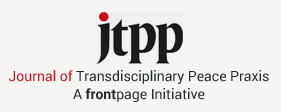Description
The ‘Normality’ of Social Conflicts: Why Post-War Political Instability Might (Sometimes) be a Good Thing
Kathia Légaré (Professor, Saint-Paul University, Ottawa, Canada)
Peacebuilders often look at social conflicts as problematic. They have sought ways to neutralise them, for instance by imposing settlements. However, expecting to strengthen institutions and create state capacities without generating conflicts is not realistic and can be counterproductive. For sure, conflicts can be destructive, when they paralyse the institutions and the decision-making processes.
War recurrence is also a serious risk. However, conflicts are ‘normal’ social interactions. They play key constructive roles in peace processes by helping societies adjust to the social changes brought by the war, by preventing peace from becoming intractable, and by strengthening the relations between social groups, thus helping to restore social cohesion.
Notwithstanding the risks, politics, despite its ‘messiness’, might offer the best way out of war as a process of continuous adaptation to complicated social changes. This is why post-war politics instability might be, in certain circumstances, as a good thing.
The nagging question is why some conflicts have positive repercussions on social ties and others have negative outcomes. To further the understanding of the paradoxical impact of conflicts, this article suggests that it is first necessary to consider the three levels of conflict in divided societies—inside the groups, between the groups and across the groups—and their interactions.





